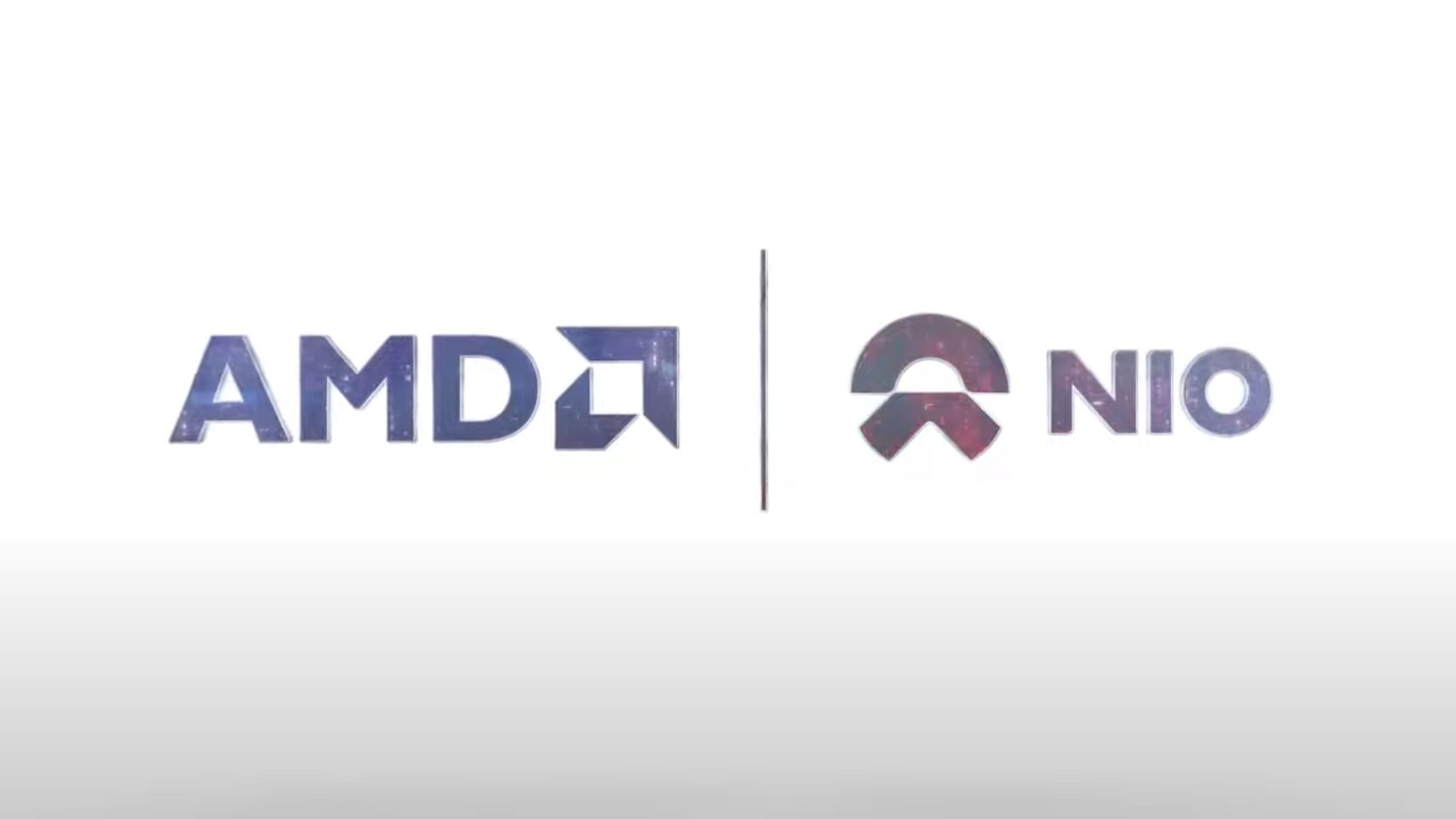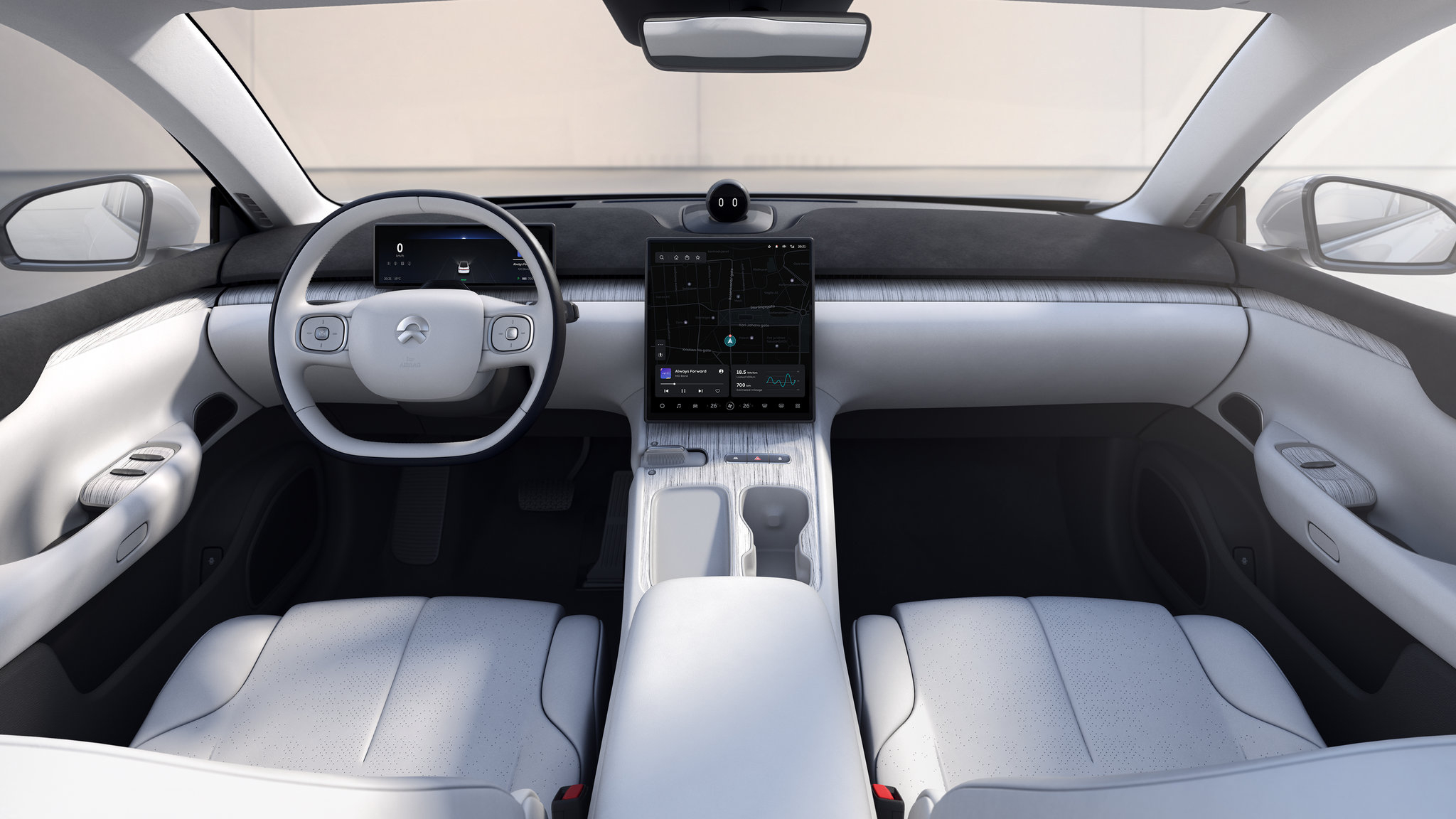Nio Taps AMD EPYC Chips for EV Development, Autonomous Driving
Nio will leverage Zen 3-based EPYC 7003 processors.
Tesla may be the global leader in electric vehicles, but Chinese rival Nio has launched some compelling sedans and crossovers that are big hits in its home market and abroad. With fresh styling, loads of tech, and long driving ranges, Nio has its eye on future EV dominance. The company has now teamed up with chipmaker AMD to use the Zen 3-based EPYC 7003 HPC platform to lower its total cost of ownership and slash vehicle development times in an increasingly competitive market.
The news was first reported by CnEVPost, citing an AMD video posted to the Weibo Chinese social media platform. Nio will use EPYC-based servers for tasks like AI deep learning, which is a crucial aspect of self-driving vehicle technology employed by modern automobiles. These training routines give systems like Tesla's Full Self-Driving Beta the ability to drive through city streets and on highways without human intervention. Autonomous driving systems are by no means perfect, so training aided by more powerful hardware like EPYC will help to make these types of driver assistance features safer and more reliable in the future.

In addition, EPYC systems will help aid Nio in vehicle development with crash simulations and aerodynamic modeling. Maximum driving range is a critical selling point for modern EVs, so it is essential that manufacturers design vehicles with a low drag coefficient of drag to slice through the air. Large lithium batteries and efficient electric motors contribute significantly to an EV's potential driving range, but aerodynamics also plays an important part.

While Nio is getting cozy with AMD on the development side, it hasn't yet committed to using the company's hardware inside its vehicles. Qualcomm's Snapdragon Digital Chassis platform powers the displays and infotainment systems within Nio EVs. Likewise, its onboard self-driving hardware uses a combination of chips from Nvidia and Intel's Mobileye. AMD Ryzen APUs are prominently featured in Tesla's latest EVs, and handle navigation and infotainment duties. There's an opportunity for Nio to also use AMD Ryzen chips in its future EVs, and we're certain that AMD is angling to win the company's business.
Nio's latest product is ET7, which is its flagship all-electric sedan. It is comparable in size to the Tesla Model S and offers batteries ranging in size from 70 kWh to 150 kWh (for comparison, the Model S tops out at 100 kWh). According to Nio, the large battery pack gives the ET7 a maximum driving range of up to 620 miles based on NEDC ratings.
Get Tom's Hardware's best news and in-depth reviews, straight to your inbox.

Brandon Hill is a senior editor at Tom's Hardware. He has written about PC and Mac tech since the late 1990s with bylines at AnandTech, DailyTech, and Hot Hardware. When he is not consuming copious amounts of tech news, he can be found enjoying the NC mountains or the beach with his wife and two sons.